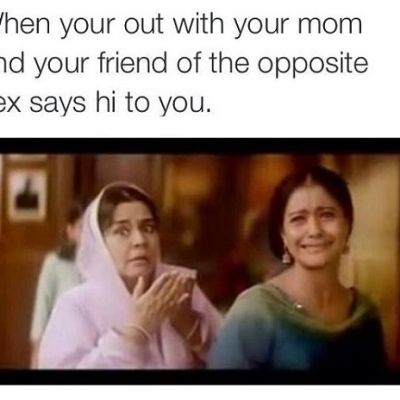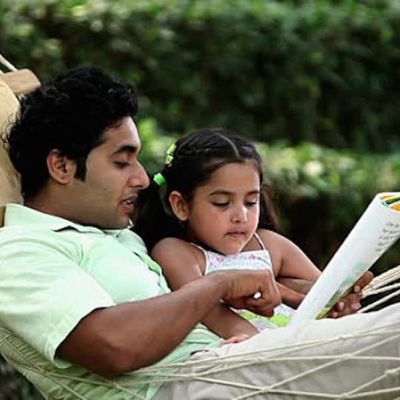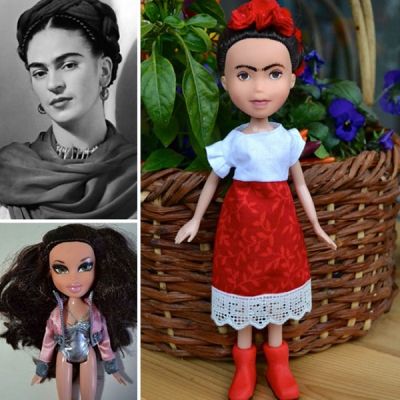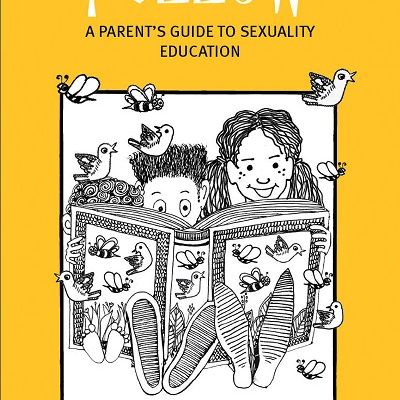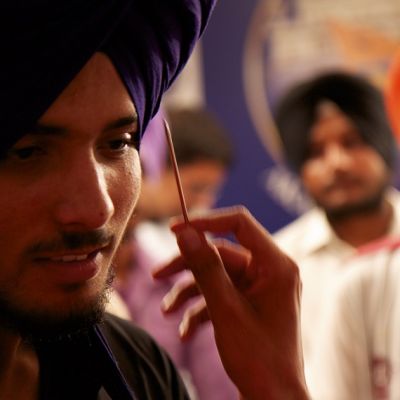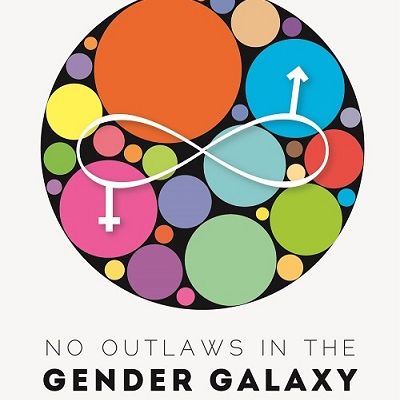Categories
How have we reached a point where non-consensual behaviours in romantic and sexual relationships are criminalised, but parental domination is still legitimised, or trivialised in the name of “Oh, but I know my parent is a good person and wants what is best for me”?
Looking for birthday gifts for nieces and nephews in a favourite, well-curated bookshop in Delhi, we were dismayed that we couldn’t find any books that told the kinds of stories that we would like for kids today to read and hear.
Little Pappu asks his father innocuous questions about all kinds of things to do with sexuality, and while his papa tries reluctantly at first to address his curiosity, he soon finds light-hearted and honest ways to explain concepts to his son.
Canadian parent Wendy Tsao took her child’s over-sexualised dolls, removed their makeup and changed their overly done-up hair to turn them into role models from real life. By creating from commonly available dolls lookalikes of real-life women of renown, Tsao explores the idea of playthings having an influential impact on the formation of one’s own identity.
When working with parents on child sexual abuse prevention, I often get asked the question, “How old should my kids be before I talk to them about sexual abuse?” My usual response is, “How old do kids need to be before they can be sexually abused?”
In a country with a burgeoning population that still doesn’t believe in talking about sex openly, the book wants to help parents and teachers deal with uncomfortable questions rather than brush them under the carpet. To ensure that young children are not dismissed, distracted, or confused by adults who are too awkward or even (gasp!) ignorant of biology.
As a society, in our platforms of exchange of goods, products and services, how are we approaching parenting, children or sexuality? Stores are clearly catering to the constructed parent and child. There’s lots of toys, clothes, diapers, bedsheets and cute dangling, fluffy things to cluck at in stores catering to parent and child as a combination thali (platter). The day I see personal and sexual hygiene products in a store catering to mom and a teenaged me, I will kick up my heels and bray.
Talking about migration would be talking about what happens with the crossing of boundaries. Boundaries of culture and climate, and boundaries of visibility, where a change in semantics can come to render what was invisible visible (an accent, perhaps a way of dressing, one’s values and ideas, the experience of being surveilled as an alien), while also allowing the migrant certain new freedoms to be invisible (anonymity where ‘nobody knows your name’, and certain kinds of agency one may not have enjoyed back home).
If the turban-tying ceremony represents the official rite of passage from Punjabi/Sikh boyhood into Punjabi/Sikh manhood, the practice of cutting unshorn hair upon arriving in Chandigarh signifies yet another (albeit unofficial) rite of passage from Punjabi/Sikh manhood into migrant manhood.
The book explores how gender plays out in public and private institutions like family, educational institutions, work and public spaces. It illustrates the multiplicity of ways in which people live gender and testifies that even if there are gender laws, in a just world there can be no gender outlaw.
यूँ तो विवाह और उससे जुड़े महिलाओं के ‘स्थान परिवर्तन’ को ‘प्रवसन’ का दर्ज़ा दिया ही नहीं जाता है, इसको एक अपरिहार्य व्यवस्था की तरह देखा जाता है जिसमें पत्नी का स्थान पति के साथ ही है, चाहे वो जहाँ भी जाए। पूर्वी एशियाई देशों में, १९८० के दशक के बाद से एक बड़ी संख्या में महिलाओं के विवाह पश्चात् प्रवसन का चलन देखा गया है जिन्हें ‘फॉरेन ब्राइड’ या विदेशी वधु के नाम से जाना जाता है। इन देशों की लिस्ट में भारत के साथ जापान, चीन, ताइवान, सिंगापुर, कोरिया, नेपाल जैसे कई देशों के नाम हैं। यदि विवाह से जुड़े प्रवसन को कुल प्रवसन के आकड़ों के साथ जोड़ा जाए तो शायद ये महिलाओं का सबसे बड़ा प्रवसन होगा।
The boisterous figure of Indo-Trinidadian chutney soca musician Denise “Saucy Wow” Belfon has ruffled the feathers of many an Indian-origin immigrant sentiment with her song ‘Looking for an Indian Man’.
Emmi Kurowski (Brigitte Mira), a widow in her sixties, walks into a bar to take shelter from the rain. She is met with hostile stares by a mixed group of Moroccan immigrants and Germans. As a joke, one of his friends challenges Ali (El Hedi ben Salem m’Barek Mohammed Mustafa), a young strapping Berber man, to ask her for a dance. He agrees, and thus begins a romance across the taboo lines of race and age.
To all the American daughters of South Asian immigrants: Have you ever felt that you just can’t be a Good Girl? Your parents and South Asian community have likely tried drilling in you that Good Girls follow the path of academic excellence, a well-paying job (doctor, lawyer, or engineer), marriage to a well-paid Desi man (preferably a doctor), and then a happy house with kids. Obedience to parents, no dating (at least not while a student), and virginity until marriage are absolutes.
Watch some popular Bollywood music videos about separated lovers across the decades.

